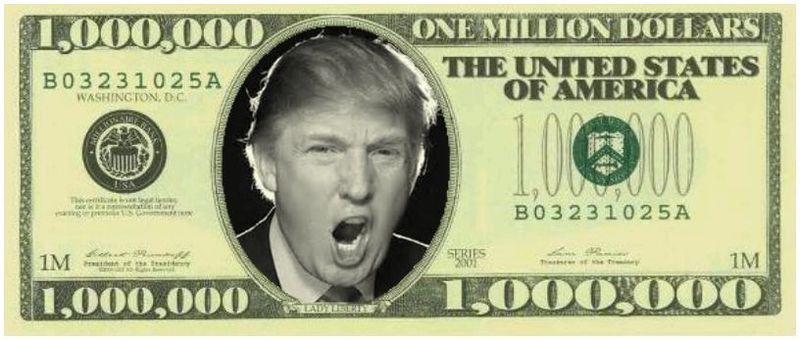There are two campaign-related issues to discuss: the debate’s impact on the Democratic race, and the third quarter fundraising totals. Let me begin with the Democratic debate. As I noted in my last post, the post-debate reaction among pundits seemed to split between the “traditionalists”, who thought Clinton won based on conventional debate scoring measures (content, delivery, poise, etc.) and those who cited social media metrics, such as tweets, facebook mentions and google searches, as evidence that Bernie came out on top. Among the latter group, there were lots of suggestions that, given the social media measures showing Sanders winning, the mainstream media (MSM) was “in the tank” for Hillary – an argument that would certainly surprise Clinton supporters, given the negative nature of the media coverage of her campaign this last month. As I told my students, however, there were good reasons to believe that social media metrics probably did not offer a representative sample of the opinions of those who watched the debate, largely because Bernie’s supporters, particularly younger voters, are disproportionately more likely to use social media. I also suggested that a lot of the social media traffic was driven by people trying to find out more about this wild-haired radical from Vermont.
We are now getting the first polling data which promises to offer a more representative sample of debate watchers and, consistent with my earlier post, it suggests that Hillary “won” the debate, at least in the narrow sense of the word. So, an NBC poll Survey Monkey online poll indicates that among Democrats, more than half—56%— thought Clinton won the debate. Similarly, a Gravis media automated poll of registered Democrats showed 62% of respondents thought Clinton won, compared to 30% for Bernie. Done correctly, these polls arguably provide a better measure of who “won” the debate.

Moreover, Hillary’s performance garnered her some very high favorable ratings.

Hillary’s victory margin in the two polls, probably not coincidentally, almost exactly mirrors her current lead in the HuffingingtonPost aggregate polling (which includes polls that include Joe Biden). This suggest that one’s view on who won the debate was heavily influenced by which candidate one was supporting going into that debate – a finding that is consistent with previous research on this topic. Given that dynamic, it is perhaps not surprising that neither of these early polls indicate that the debate had much impact on the overall race for the Democratic nomination. In one sense, of course, this might be viewed as a lost opportunity for Bernie, since he needs to make up ground and it’s not clear that he did so in this first side-by-side event with his chief rival. On the other hand, Bernie used the debate to gain much needed exposure and, not incidentally, as a very productive fundraising tool, with early reports indicating he raised over $1 million during the debate itself. And his favorable ratings were also quite high as a result of his debate performance, according to the Gravis poll. In short, even if Bernie didn’t win the debate, it’s hard to argue he lost.
Yesterday was the deadline for candidates to file third-quarter FEC campaign expenditure reports and most of the results are now publicly available. I’ll have much more to say about these figures when the complete totals come out, but for now I would remind you to look at the fundraising figures as is, rather than how the punditocracy tells you to look at them. Thus, while Jeb Bush’s third-quarter total dropped from the previous quarter, he still raised $13 million, the second-highest fundraising total among Republicans who have reported so far, and he remains well positioned to stay in the race for the long haul. For Bush, the focus seems less on winning the early polling race, and more on positioning himself to win delegates over the course of a lengthy nominating process. This won’t stop pundits from printing a slew of stories regarding how Bush’s lower numbers are making donors nervous, etc., just as they did when Hillary’s totals were released earlier this month. But at this point, looking at the overall picture, one would probably rather be in Bush’s shoes than that of almost any other Republican candidate – with the conspicuous exception of Donald Trump.
The Donald keeps chugging along, defying expectations that his polling will nosedive anytime soon. Two more recent polls show him leading the Republican field in the South Carolina and Nevada – two important states that come early in the Republican nomination calendar. As I told Sirius Radio’s Ari Melber in an interview last night, however, it is important to remember that based on past surveys, it’s likely that only about 40% of potential voters are paying close attention to the presidential race so far. This suggests that The Donald is still benefiting in the polls from his high name recognition and celebrity factor, as well as his innate talent for attracting media coverage. The key issue remains whether opposition support, particularly within the Republican Party establishment, coalesces around of one of Donald’s rivals as more candidates are winnowed from the field. In the meantime, to add insult to injury, The Donald raised almost $4 million from about 75,000 individual donors this last quarter – this for a man who brags about how much money he has!

America – it’s a great country.
Addendum 2:20 – I should have also noted this third poll by YouGov which, consistent with the other two polls, shows Hillary winning the debate 38%-22% over Sanders who finished second. Consistent with my surmise regarding the skewed nature of social media use when evaluating debate results, Clinton won every age group in the YouGov poll except those under 30 years. Among this latter group, Sanders was deemed the winner by 32% compared to 29% who thought Hillary won. The YouGov poll has interesting crosstabs results which I should probably discuss in a future post.
And now, I’m off to a Martin O’Malley rally!
